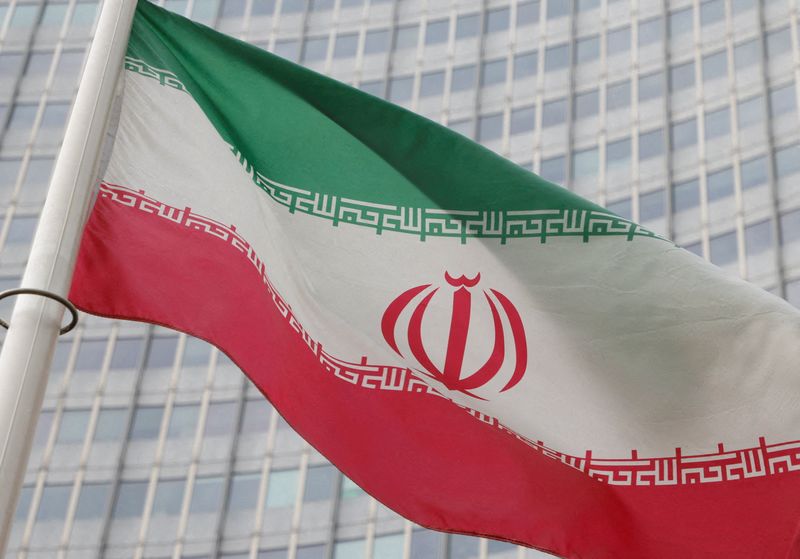By Francois Murphy and John Irish
VIENNA/PARIS (Reuters) - The U.S. and its three top European allies are divided over whether to confront Iran at the U.N. nuclear watchdog by seeking a resolution against it and thereby risk further escalation, with the Europeans in favour, diplomats say.
It is 18 months since the International Atomic Energy Agency's 35-nation Board of Governors last passed a resolution against Iran, ordering it to cooperate urgently with a years-long IAEA investigation into uranium particles found at three undeclared sites.
While the number of sites in question has been narrowed to two, Iran still has not explained the traces, and the number of other problems in Iran has risen including Tehran barring many of the IAEA's top uranium-enrichment experts on the inspection team.
A quarterly Board of Governors meeting begins in 10 days.
"It's extremely difficult with Iran and the level of violations is unprecedented ... There is no slowing down of its programme and there is no real goodwill by Iran to cooperate with the IAEA," a senior European diplomat said.
"All our indicators are flashing red."
Concern about Iran's atomic activities has been high for some time. It has been enriching uranium to 60% purity, close to the roughly 90% that is weapons-grade, for three years. It has enough material enriched to that level, if refined further, for three nuclear bombs, according to an IAEA yardstick.
Western powers say there is no credible civilian energy purpose in enriching to that level, and the IAEA says no other country has done so without making a nuclear weapon. Iran says its objectives are entirely peaceful.
The United States, however, has not wanted to seek another resolution against Iran at recent IAEA board meetings. Before the last one, in March, the European powers - France, Britain and Germany, known as the "E3" - disagreed with Washington on whether to seek a resolution but then backed down.
Officials often cite the U.S. presidential election as a reason for the Biden administration's reluctance.
But the main argument U.S. officials make is to avoid giving Iran a pretext to respond by escalating its nuclear activities, as it has done in the past.
Tensions in the Middle East are running particularly high with Israel continuing its military campaign in Gaza in response to Hamas's Oct. 7 attack. Israel and Iran carried out direct strikes on each other for the first time last month, and Israel has repeatedly threatened to attack Iran's nuclear facilities.
Iranian President Ebrahim Raisi's death in a helicopter crash on Sunday has complicated the situation. In talks aimed at improving Iran's cooperation with the IAEA, Tehran told the Vienna-based agency this week it would not engage with it until Raisi's successor is elected on June 28, two diplomats said.
"A resolution has been prepared," another senior European diplomat said. Others confirmed the E3 had prepared a draft but not circulated it to Board members.

"Our analysis is the death of Raisi changes nothing. We have to move forward with this resolution ... The Americans are the difficulty, and in our conversations we continue to do everything to convince them."
It was unclear when a decision on whether to seek a resolution would be reached. The next quarterly IAEA reports on Iran are due early next week. Draft resolutions tend to refer to those reports' findings.